……article continues from Maintaining an Undefiled Conscience in the World of Distraction—Part 2
Secularization and Secularism
Within Orthodox Christianity, the faith is generally “encultured.” It does not exist apart from the culture, but within the culture – transforming, shaping and 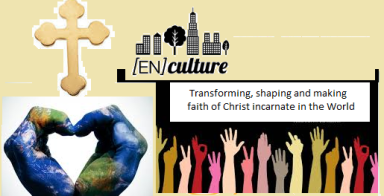 making the faith of Christ incarnate in the world. Christianity first expressed this model in the context of first-century Judaism. The disciples in Jerusalem met together on Solomon’s Porch. Small asides in St. Paul’s writings and in the book of Acts, show that despite dropping the requirement for circumcision, early Christians continued to observe many Jewish practices (St. Paul, for example took a Nazarite vow for a time Acts 18:18). The same can be said for the Church’s encounter with the broad culture of Hellenism. The Hellenistic language of Platonism provided the vocabulary (though the meanings were altered) for most of the theological expressions of the great doctrines. The vestments of the Church, and some sense of its ceremonies, clearly reflect both the Church’s roots in Judaism as well as the life of the Roman royal court [i].
making the faith of Christ incarnate in the world. Christianity first expressed this model in the context of first-century Judaism. The disciples in Jerusalem met together on Solomon’s Porch. Small asides in St. Paul’s writings and in the book of Acts, show that despite dropping the requirement for circumcision, early Christians continued to observe many Jewish practices (St. Paul, for example took a Nazarite vow for a time Acts 18:18). The same can be said for the Church’s encounter with the broad culture of Hellenism. The Hellenistic language of Platonism provided the vocabulary (though the meanings were altered) for most of the theological expressions of the great doctrines. The vestments of the Church, and some sense of its ceremonies, clearly reflect both the Church’s roots in Judaism as well as the life of the Roman royal court [i].
This is not only how things should be, it is utterly inevitable. Our faith is not lived on a planet or world apart from the one on which we live. The language of the culture, the deeper, and unspoken ethos of the world in which we live, will find its way into the life of the Church. Normatively, the inner life of the Church finds its way into the greater culture as well. This is probably the true meaning of symphonia, the theory often used to describe the relationship between Emperor and Church (not all cultures have emperors).
The modern world presents new challenges to this model. The secular construct of the world, the hallmark of the modern age, offers perhaps the most cogent and pervasive alternative to traditional Christianity since the Hellenistic period. More complicated still, is the fact that this construct is itself a product of certain expressions of Christianity, and thus has something of an acquired immunity to classical Christianity. In the modern world, Orthodox Christianity encounters the secularized God, the secularized Church and the secularized sacraments. The tragic results can occasionally be a secularized Orthodoxy. What does this mean?
Before looking into the fact that how this secular worldview has influenced the perspective of an orthodox Christian individual or the church as a whole let us look into the fact as to how this ideology has crept into this world system.
The word “Secular”[ii] as an adjective qualifying our time connotes the presence in our age both of secularization as an accelerated process, and of secularism as a complex of assumptions.
Secularization as an English word goes back to 1706 at least, while the adjective Secular was already current in English before 1350(Seculer in Old French). Both are derived from Latin saeculum and Saecularis, the age, the world, pertaining to the world or to the age.
Secularization should be understood in its double aspect- the intellectual and the institutional.
The acceleration of the process of intellectual secularization in the west begins with the view developed by Duns Scotus and Ockham[iii] positing radical discontinuity between faith and knowledge, between revelation and reason. Others developed the line of demarcation further. While for Scotus and Ockham the emphasis was on reason[iv], for Luther it was on Revelation[v]. The cleavage grew wider in the Italian Renaissance, and the search of reason for complete freedom from revelation received further impetus from Descartes[vi], Hobbes, Spinoza and Leibniz, in their attempts to construct a rational picture of the universe based on empirical data alone[vii].
The European process of secularization has two-fold aspect- the liberation of human thought from religious presuppositions, and the liberation of human institutions from ecclesiastical control. The nature and function of the State, for example, began to be thought of in autonomous, independent, immanent terms rather than in terms of a transcendent order subsidiary to the saving purpose of God through the Church. In political terms this meant liberation from papal control, and thus national “sovereignty”.
In the English language, when the word was first used (as far as we know) in 1706, it meant “the conversion of an ecclesiastical or religious institution or its property to secular possession and use” (Shorter Oxford English Dictionary). In French and German also the word was used at this time in much the same sense, when monasteries and church lands were placed under non-ecclesiastical possession and control. In 1789, the French National Assembly placed all church properties at the disposal of the nation, and in the French language the word secularization was more or less synonyms with laicization.
In the European Enlightenment, secularization came to stand for emancipation from the overruling power of God Himself, who was till then assumed generally to have full control of everything in the universe. Enlightened European man “came of age” and accepted responsibility for running the world. In a sense this was a lay revolt against clerical domination, and the denial of the existence of God was often an effective weapon against the influence of the priest. The denial of the “other world” was only a prelude to the denial of the God who inhabited that “other world”.
The emphasis on this world led men like Fontonelle, Montesquieu, Helvetius (enlightenment philosophers) to rule out all idealism and metaphysics and deal only with the immediately experienced and the directly tangible.
The current picture of secularization in our age is quite complex, the word itself being used with a wide spectrum of meaning by different groups.
We shall mention only three groups:
(1) Those who substitute for the norm of revelation some form of normal law, usually received from stoicism- these are philosophers of secularization.
(2) those who commit themselves, without an acknowledged transcendent authority, to the ideal of using our best human efforts to achieve maximum of social justice and human welfare in this world- these may be called the prophets of secularization- and
(3) Those who seek to be as open as possible in their understanding of this world and in choosing the immediate goals to be achieved in this world by man and society. These may be named the pragmatists of secularization.
Secularism as an English word goes back to 1846, when it meant a morality based solely on the welfare of men in this world. In 1863 it came to mean taking a stand for an education which excluded religious subjects. In our time it is often used to refer to a complex of assumptions which deny all reference to any reality that is “beyond” the world of our experience. The distinction between secularization as a process and secularism as a complex of assumptions should not be pressed too far, but is discussed here mainly to distinguish between two aspects of the same secular movement of thought and action.
An Orthodox Christian’s secular worldview[viii] is one that does not deny the existence of God, but distances Him from the everyday world. Human beings are seen strictly in individualized terms, communities only existing through the sharing of ideas and practices. Religious groups can exist in abundance in such a setting, but largely as expressions of individual choices. The world (and culture) is understood to be religiously “neutral” territory – places in which the presence of religious concerns is inherently unnatural. God is a preference, a choice, but never truly integral to daily life.
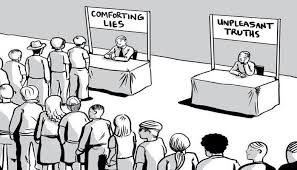
In secular cultures, Orthodoxy becomes a choice: “I am Orthodox because I like it.” This sounds perfectly normal (why else would someone be Orthodox?), but it is a subtle shift within the mind and heart of a believer. The kinds of cereal we eat in the morning, the kind of beverage we drink in the evening, are equally choices – products of our preferences. In the modern secular world, particularly in its current dominant form of consumer secularism, the believer consumes his religious preference. His God, his community, his set of practices, are subtly diminished to the set of consumer decisions. The result is often a lifestyle that is largely indistinguishable from that of other consumers. The pressure of Church on the culture of believers is rebuffed: the culture wins. It often means an Orthodoxy that is similar to surrounding secularized groups. Church attendance becomes sporadic, limited to Sunday mornings, prayers in the home diminished (if present at all), and the liturgical rhythm of the year reduced to Sundays, Christmas, Lent.
 These observations are not made in order to criticize or judge. They are made in order to describe the outlines of the modern cultural challenge. The nature of all cultures is marked by their unconscious nature. If you live in a culture and are part of it, you don’t have to think in order to be at home. An unconscious Orthodoxy, in the modern context, is likely to become a secularized version. The modern culture in which we live is a secularized culture – thus we have no choice but to think about what it means for the faith and this indeed becomes a challenge for us to enculturate the faith in a culture that inherently spurns the nature of that faith.
These observations are not made in order to criticize or judge. They are made in order to describe the outlines of the modern cultural challenge. The nature of all cultures is marked by their unconscious nature. If you live in a culture and are part of it, you don’t have to think in order to be at home. An unconscious Orthodoxy, in the modern context, is likely to become a secularized version. The modern culture in which we live is a secularized culture – thus we have no choice but to think about what it means for the faith and this indeed becomes a challenge for us to enculturate the faith in a culture that inherently spurns the nature of that faith.
Religious Pluralism
Unfolding within our secular culture is the ever-expanding reality of globalization that has given rise to religious pluralism. On the one hand religious pluralism is not something new. For millennia various religious groups have co- existed either as friends or as enemies in which case one group seeks to forcefully persecute, subjugate an even convert the other.
As Orthodox Christians, we peacefully co-exist with other Christians as well as with many who are not Christians. We live in a country where there is no state church. And though we are not persecuted, as were the Christians of the first three centuries, the religious pluralism of our time has more in common with the pre-Constantinian era than with the Christian empire. We live in a country where the religious makeup of its citizens is anything but monolithic. Being a small, sociologically insignificant and poor church allows us once again to be dependent on and thankful for the gifts of the Spirit who makes possible the proclamation of the Gospel.
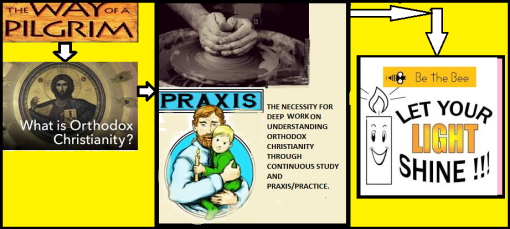
A Practical Approach to make the Orthodox Christian Faith Firm and avoid religious pluralism
Religious pluralism can instill insecurity and vulnerability in the minds and hearts of those adhering to a particular belief system. Comparing and contrasting one’s religion with those with which it co-exists is inevitable. Consequently, one of the greatest challenges accompanying religious pluralism in a free society is the possibility to choose and therefore the possibility to leave one religion – one creed – for another. The changing of one’s religion is often preceded by doubt brought on not only by ignorance, indifference and/or insecurity in the life and tenets of a given faith but also by what is perceived as new, challenging and vivifying in other belief systems. Doubt and change also occur when one’s religion espouses or is perceived to espouse enmity and even hatred towards a particular group or groups that question and challenge the status quo of a given faith system. The absence of dialog and the unwillingness of a given faith to re-examine or cross-examine what it perceives as its unchangeable ethos is basically an invitation for many to leave what is most loved and cherished in their lives. With this exodus one is left with two options, either to assume another religious identity or to remain outside organized religion all together.
Indigenization
Early Christian thinking on non-Christian religions was conditioned by the pagan polytheism of the Roman Empire, religious aspects of Greek philosophy and links between Christianity and Judaism; including the incorporation, not without some hesitation, of the Jewish sacred books into the Christian Bible. Some early Christian fathers, especially St. Justin Martyr (c.100–c.165) had a cautiously positive view concerning the existence of elements of truth among pagan philosophers and Jewish sages, while Tertullian (c.155–c.240) represented a less tolerant view, which became more dominant in later Christian thinking. Later in history, Orthodoxy had extensive historical experience, not entirely negative, of life as a religious and cultural minority under non-Christian regimes in Persia, the Arabic Middle East and the Ottoman Empire. For long centuries Christian communities were in a ‘survival mode’ under Muslim rule in these areas, which made theological reflection on the meaning of religious diversity in God’s plan for salvation difficult. Only in recent times have Orthodox theologians begun to reflect more systematically on the theological significance of non-Christian religions, especially as Orthodoxy is increasingly confronted with this reality both in countries of Orthodox immigration, and increasingly in countries of Orthodox tradition. Contemporary Orthodox attitudes towards religious diversity are often linked with thinking on secularism, human rights and the religious policy of the State. Several notions concerning non-Christian religions which have come down to us from the ancient Fathers are still relevant. The most important is no doubt from Justin Martyr, who applies the Hellenistic notion of the “seeds of the Logos” (logos spermatikos) in a Christian sense. Justin recognizes that pagan philosophers, especially Socrates and Plato, had a degree of knowledge of truth, but that the fullness of truth resides only in Christian revelation. He even goes so far as to refer to certain Greek philosophers and various Jewish figures as Christians: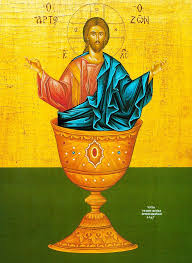
We have been taught that Christ is the First-born of God, and we have suggested…that he is the logos of whom every race of men and women were partakers. And they who lived with the logos are Christians, even though they have been thought atheists; as, among the Greeks, Socrates and Heraclitus, and people like them; and among the barbarians, Abraham, and Ananias, and Asarias, and Misael, and Elias (Justin Martyr 1997, First Apology, l.46).
For whatever either lawgivers or philosophers uttered well, they elaborated according to their share of logos by invention and contemplation. But since they did not know all that concerns logos, who is Christ, they often contradicted themselves (Justin Martyr 1997, Second Apology, l.10).
In his polemical treatise Against the Heathen, St. Athanasius of Alexandria (c.296–373) recognizes, like Justin before him, the possibility that pagans can rise to knowledge of truth. Possessing a rational soul and free will, pagans can abandon idolatry and return to the true God:
Just as they turned away from God with their mind and invented gods from nonexistent entities, so they can rise towards God with the mind of their soul and again turn back towards him. They can turn back if they cast off the stain of all desire which they have put on, and wash themselves until they have eliminated every addition foreign to the soul and show it unadulterated, as it was made, in order that in this way they may be able to contemplate therewith the Word of the Father, in whose image they were made in the beginning (Athanasius 1971, l.34).
Other early Christian thinkers, who recognized the existence of goodness and elements of truth in pagan religions, and especially in the philosophers, include St. Clement of Alexandria (c.150–c.215), Origen (c.184–c.253), St. Basil the Great (329–379), St. Gregory Nazianzus (329–390), and Augustine (354–430). But a critical evaluation of other religions also found support in early Christianity, inheriting the negative attitude towards pagan idolatry in both the Old Testament and the New Testament.
Even though all the above Church fathers have opened a window in understanding the goodness and elements of truth in other pagan religions, the detailed theology behind this understanding is provided by St. Gregory of Nyssa (335–394) through his various writings.
Today in the 21st century also we find ourselves in the same situation as our early Christian Fathers were. We live in the midst of various religious and cultural diversities. The question that we need to ponder here is that
Are we trying to live our lives the way our early church fathers lived?
Are we reaching out to the those who are ignorant in the Truth in love like how are church fathers in early centuries reached out by being rooted in the faith of the Church or Are we mixing ourselves with the false teachings and moving away from “The Truth” ?
During the centuries the different Christian communions have developed their own traditions of historical study and their own particular ways of viewing the past. The views of the many churches and their traditions appear very differently from the one “Tradition of the Church”. To many of our contemporaries a concern with the past will immediately appear suspect, as revealing a desire for the mere resuscitation of old customs and ideas, which have no relevance for the urgent questions of our time. In this age of scientific and technological achievement many tend to regard the heritage of the past as unimportant. It is for this reason that it is important to understand “The Tradition of the Church”. This past of which we speak is not only a subject which we study from afar. It is a past which has value for us, in so far as we make it our own in an act of personal decision. In the Church it becomes a past by which we live by sharing in the one Tradition, for in it we are united with Him who is the Lord of history, who was and is and is to come; and he is God not of the dead but of the living.
Church and its Tradition are inseparable. The Tradition of the Church is not an object which we possess, but a reality by which we are possessed. The Church’s life has its source in God’s act of revelation in Jesus Christ, and in the gift of the Holy Spirit to his people and his work in their history. Through the action of the Holy Spirit, a new community, the Church, is constituted and commissioned, so that the revelation and the life which are in Jesus Christ may be transmitted to the ends of the earth and to the end of time. The Tradition in its content not only looks backward to its origin in the past but also forward to the fullness which shall be revealed. The life of the Church is lived in the continuous recalling, and transmission of the once-for-all event of Christ’s coming in the flesh, and in the eager expectation of his coming in glory. All this finds expression in the word and in the Sacraments in which “we proclaim the Lord’s death till he come” (I Cor. 11.26).
Now that we have recognized how the Tradition of the Church is important to our present and to our future… The Church is sent by Christ to proclaim the Gospel to all men; the Tradition must be handed on in time and also in space. In other words, Tradition has a vital missionary dimension in every land, as in St. Mathew Chapter 28:19, the command of the Lord is “Go therefore and make disciples of all nations”.
The emergence in our time of a global civilization, shaped by rapid technological advances, and grounded in a scientific outlook is transforming our concept of the universe. The new cosmology which is taking shape, challenges our traditional conceptions of man and of nature, both in themselves and in their inter-relationship with one another. Amid these developments, and to some degree because of them, radical changes in social structure are taking place in every part of the world.
It is in such testing circumstances as these, that the serious problems have to be faced of how the Church (we the members as each brick of the Church) may become truly indigenous, bringing into the service of Christ all that is good in the life of every culture and nation, without falling into syncretism (the union or attempted fusion of different systems of thought or belief- especially in religion or philosophy).
What is indigenization?
The Dictionary term for indigenous is defined in two ways and each deserves attention.
—existing, growing or produced naturally in a region or country, belonging as a native
—innate, inherent, inborn
An example of indigenization….Christianity, came to be called as the revelation and fulfillment of the Hebrew Scriptures. It began among the Hebrew people. The instructions revealed by God to some chosen people like Moses and others, were practiced as an indigenous religion by these people. In the present day they are living in what we call the Middle East, and practice Judaism. In revealing Truth through Moses, God’s words were necessarily translated into the language of the people, which was Hebrew. Although Hebrew may be the pure language of angels, conquering cultures as well as surrounding cultures and languages molded the Hebrew nation.
By the time of Christ, Aramaic, not Hebrew was the common language of these people of God. Their traders and scholars also spoke Greek, the most widely used language of the pagan Roman Empire. It is most likely that Jesus of Nazareth spoke to his followers, disciples and apostles in Aramaic. It is also recorded that he could read and speak Hebrew even as a boy. This is the beginning of the integration of indigenous qualities into Christianity.
Here in this example we see that Christianity is indigenized by adopting the local language.
Let us look at the important factor in indigenization[ix] by taking the example of the Eunomian crisis (a controversy between Eunomius and St. Gregory of Nyssa, the Cappadocian father, named by everyone as the “Father of Father’s” or the “Universal Teacher”).
Eunomius was a contemporary and chief adversary of the Cappadocian Fathers. He was also a Cappadocian from Oltiseris in Cappadocia on the border of Galatia. Eunomius was a son of a farmer. He learned shorthand, went to Alexandria and became the disciple and secretary of the arch-heretic Aetius (the sophist disciple of Arius). From Aetius, Eunomius learned the technology of sophistic (plausible but misleading) reasoning. He became the bishop of Cyzicus in 360 A. D. by Eudoxius of Antioch, who was a semi-Arian himself. Eunomius had an impressive capacity for the display of dialectic that was deceptively pleasing and pernicious, and was able to make out quite a name for himself. But he could not keep up this image among people for long. Within a year he was forced by his people to resign.
Arianism had different variants like the Anhomoian party and the Homoian party. When Julian the Apostate became the Emperor (361A.D-363 A.D), the Anhomoian party of the Arians reorganized themselves under the leadership of Aetius and Eunomius. During this time, the Anhomoian party fought both the Orthodox (led by the Cappadocians) and the Homoian party of Arians (led by Eudoxius of Constantinople and Euzious of Antioch).
Around 363 A.D, when Julian died, Eunomius began organising a Church of his own, and ordained bishops of his party in various sees. Around 366/367 A.D with the death of Aetius, Eunomius became the unquestioned leader of the Anhomoian party, and moved to Constantinople as his headquarters, only to be exiled by Emperor Theodosius.
The importance of Eunomian crisis is seldom recognized by Church historians. It was as much a peril as the Arian crisis (A crisis that happened two generations earlier, with which the battle was joined at Nicea by St. Athanasius). But precisely because the Athanasian-Nicean settlement did not deal adequately with the philosophical problems involved in Arianism, it continued to survive among intellectuals and ordinary people alike. Aetius with his sharp sophist knowledge spread the doctrine far and wide. There was a new form of liberal “Christianity” developing which denied the very foundations of the Gospel, but was eminently acceptable because of its conformity with current philosophical trends.
Thus there appeared two different approaches to indigenization.
- Aetius and Eunomius were seeking to indigenize Christianity by domesticating it within the current and acceptable philosophical framework, also referred to as the Alexandrian philosophy.
- St. Basil, St. Gregory of Nazianzen and St. Gregory of Nyssa saw that the kind of indigenization that Aetius and Eunomius did, would destroy the Gospel itself which was sought to be indigenized. The Cappadocian Fathers (Basil, Gregory of Nazianzen and Nyssa) were equally or even better at home in the current philosophy when compared to Aetius and Eunomius.
It is thus of utmost importance to see the two different approaches of indigenization. All the great Orthodox thinkers of the fourth century found it necessary to compose treatises against Eunomius because of the wrong way Eunomius tried to indigenize.
What was the essence of the difference between the two attempts to indigenize theology?
The Cappadocian Fathers representing the Nicean Orthodoxy, indigenized by adopting secular philosophy to the Christian Gospel. Example: It’s interesting to see how St. Gregory of Nyssa accepts and radically Christianizes the basic notion of sumpnoia of the Stoics, a doctrine that states the whole universe breathed together as a single organism (This will be later discussed in another article on indigenization).
Whereas
Eunomius, coming in the Arian-Aetian tradition, indigenized by adopting Christianity to secular philosophy (meaning Christian Gospel was changed to suit the secular philosophy).
This is the fundamental difference, extremely relevant to the problems of theology today. What is the central criterion which is the cornerstone of our way of theological thinking? Does it come from the Christian faith or from secular philosophy? This question is basic.
For the Cappadocians the basic category is Trinity-Incarnation. 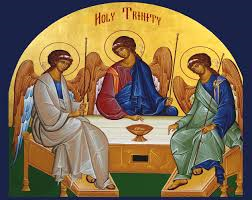 For Eunomius the foundation is the unity, simplicity and absolute uniqueness of the One— a category that reigned supreme in the Alexandrian “secular “philosophical milieu.
For Eunomius the foundation is the unity, simplicity and absolute uniqueness of the One— a category that reigned supreme in the Alexandrian “secular “philosophical milieu.
In the Alexandrian philosophy (the philosophy sought by Eunomius) there is no room for Trinity, a distinction of persons, within the one Godhead. Neither is there room for God becoming Man. Only a created being could become Man, according to Eunomius. Eunomius states that only the Father is the absolute One without a beginning or cause and not shared with anyone else, whether Son or the Holy Spirit. He states that the Son is the created being by the Father whereas the Holy Spirit and everything else in the cosmos, is created by the Son. That is the only way he could find to integrate the doctrine of the Incarnation within the prevailing philosophical system.
 Thus it can be concluded that it is very important to be grounded in the faith of the Church for any kind of indigenization. It can be harmful, if one, who is trying to indigenize, is not striving in the path of deification and does not live in the faith of the Church. St. Gregory of Nyssa speaks of the faith of the Church as of divine origin and as the light that guides to the truth, in our understanding of Scripture as well as in our sifting of “outside knowledge (knowledge and wisdom of pagan schools)”.
Thus it can be concluded that it is very important to be grounded in the faith of the Church for any kind of indigenization. It can be harmful, if one, who is trying to indigenize, is not striving in the path of deification and does not live in the faith of the Church. St. Gregory of Nyssa speaks of the faith of the Church as of divine origin and as the light that guides to the truth, in our understanding of Scripture as well as in our sifting of “outside knowledge (knowledge and wisdom of pagan schools)”.
Thus from Part 1 to Part 3 of the article on maintaining an undefiled conscience in the world of distraction we have seen the few of the notable distractions that are responsible for clouding the true Christian faith.
Maintaining an Undefiled Conscience in the World of Distraction —–Concluding Part 4 continues…….
[i] “The use of contextual representations and images in order to render dogmatic truths comprehensible by people with different cultural backgrounds is often not only legitimate, it is even imperative. This is a fundamental missionary and educative principle, which is deeply rooted in the History and the life of the Church. However, the use of these contextual representations and images needs to be confined, only to the morphology of the dogma, leaving its essence intact and unalloyed. This is precisely the stance that was upheld by both the Apostles and the Fathers of the Church; although borrowing virtual representations and terminology from the contextual cultural background of the Hellenic world, they nevertheless confined themselves exclusively to the morphological level and did not alter the message of the divine Revelation […] Characteristic examples are in both the characterization of the Son of God by John the Evangelist with his Stoic or Philonian term “Logos”, as well as the usage of the Stoic perceptions of the poets Aratus and pseudo-Epimenides by the Apostle Paul during his oration on the Hill of Aries, in order to highlight the omnipresence of God and His relation to the human race.”
[ii] Source- Worship in a Secular Age by Dr. Paulose Mar Gregorios
[iii] William of Ockham (c. 1287–1347) is, along with Thomas Aquinas and John Duns Scotus, among the most prominent figures in the history of philosophy during the High Middle Ages. He is probably best known today for his espousal of metaphysical nominalism; indeed, the methodological principle known as “Ockham’s Razor” is named after him. But Ockham held important, often influential views not only in metaphysics but also in all other major areas of medieval philosophy—logic, physics or natural philosophy, theory of knowledge, ethics, and political philosophy—as well as in theology.
[iv] Reason is the capacity for consciously making sense of things, applying logic, establishing and verifying facts, and changing or justifying practices, institutions, and beliefs based on new or existing information. Reason, or an aspect of it, is sometimes referred to as rationality. Reason, like habit or intuition, is one of the ways by which thinking comes from one idea to a related idea. For example, it is the means by which rational beings understand themselves to think about cause and effect, truth and falsehood, and what is good or bad. It is also closely identified with the ability to self-consciously change beliefs, attitudes, traditions, and institutions, and therefore with the capacity for freedom and self-determination.
[v] In religion and theology, revelation is the revealing or disclosing of some form of truth or knowledge through communication with a deity or other supernatural entity or entities.
[vi] Descartes laid the foundation for 17th-century continental rationalism, (rationalism is the view that “regards reason as the chief source and test of knowledge” or “any view appealing to reason as a source of knowledge or justification”. More formally, rationalism is defined as a methodology or a theory “in which the criterion of the truth is not sensory but intellectual and deductive”.) Later advocated by Baruch Spinoza and Gottfried Leibniz, and opposed by the empiricist school of thought consisting of Hobbes, Locke, Berkeley, and Hume. Leibniz, Spinoza and Descartes were all well-versed in mathematics as well as philosophy, and Descartes and Leibniz contributed greatly to science as well.
[vii] Empiricism is a theory that states that knowledge comes only or primarily from sensory experience. Empiricism in the philosophy of science emphasizes evidence, especially as discovered in experiments. It is a fundamental part of the scientific method that all hypotheses and theories must be tested against observations of the natural world rather than resting solely on a priori reasoning, intuition, or revelation.
Empiricism, often used by natural scientists, says that “knowledge is based on experience” and that “knowledge is tentative and probabilistic, subject to continued revision and falsification.” One of the epistemological tenets is that sensory experience creates knowledge. Empirical research, including experiments and validated measurement tools, guides the scientific method.
[viii] Source- Secular Orthodoxy by Fr. Stephen Freeman
[ix] Source- Cosmic Man by Dr. Paulose Mar Gregorios
A great read!! Thank you for the time and prayers for His spirit to strengthen you to write from His wisdom showing the truth to many who search for……
Love to read and practice early church father s mysterious ways of living in His presence ; how to implement in fellowship groups.
Thanks again and looking forward!
Prayers
LikeLike
Dear Renil,
Blessings from the Orthodox Christian Life team. Thank you very much for your encouraging comments and appreciation.
Orthodox Way of Life is something each person has to implement upon oneself slowly and steadily in their daily life. By doing this each person develops the quality to attain a personal relationship with Jesus Christ.
Christianity proclaims the Gospel of good news based on the faith in the crucified and risen Christ. This faith is to be lived out in reality by individual members in society/fellowship. Thus Christianity has an individual and a corporate dimension of existence. It is to the individual person in the society that the Gospel is preached. The individual and society are to be changed according to the norm of the Gospel. Each individual member in the fellowship should be able to study and practice the Orthodox way of living. It is also shown as a pictorial representation under the topic religious pluralism.
LikeLike
Pingback: Maintaining an Undefiled Conscience in the World of Distraction —–Part 2 | Orthodox Christian Life (of being and remaining in orthodox way of life)
Pingback: Maintaining an Undefiled Conscience in the World of Distraction —–Part 4 | Orthodox Christian Life (of being and remaining in orthodox way of life)